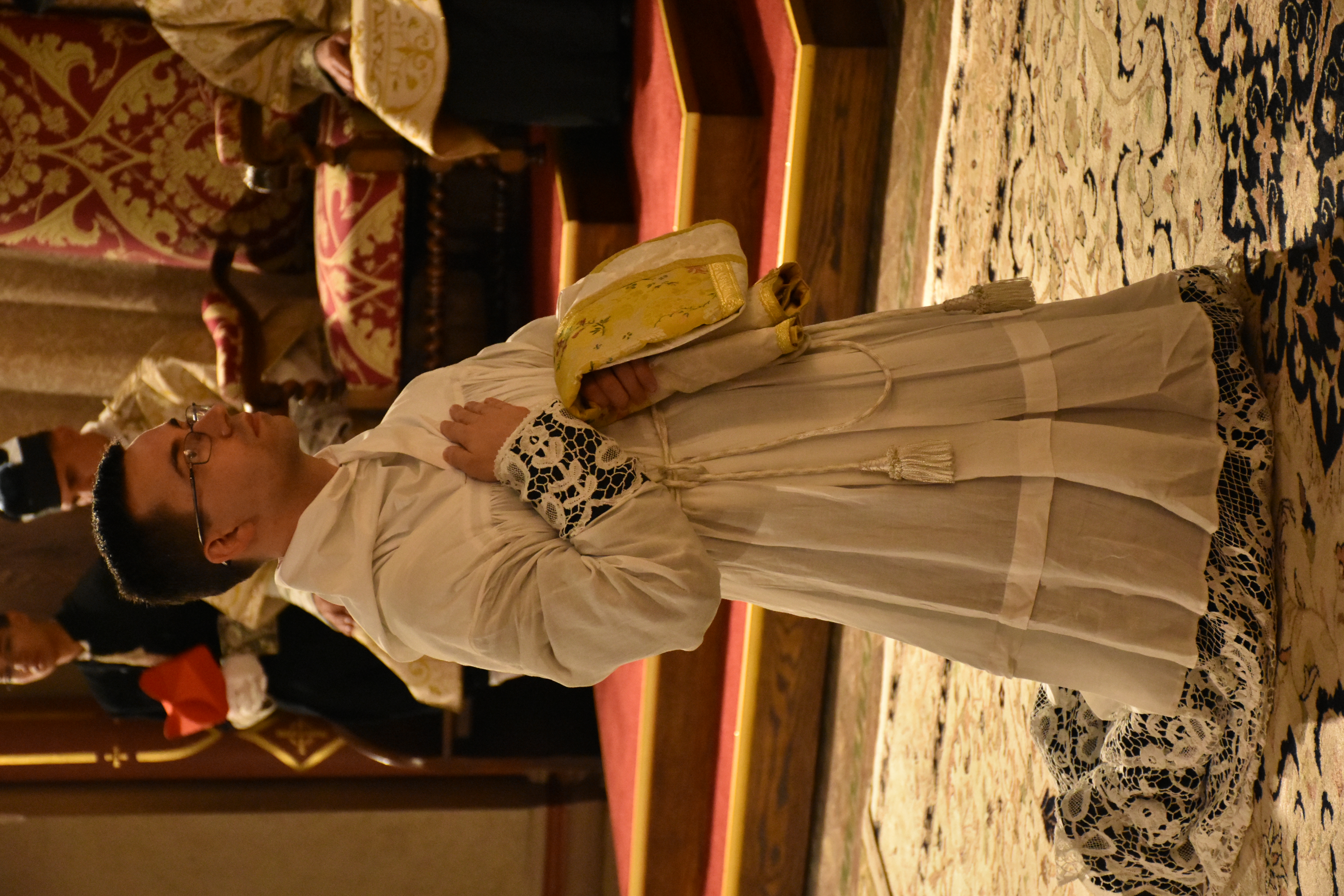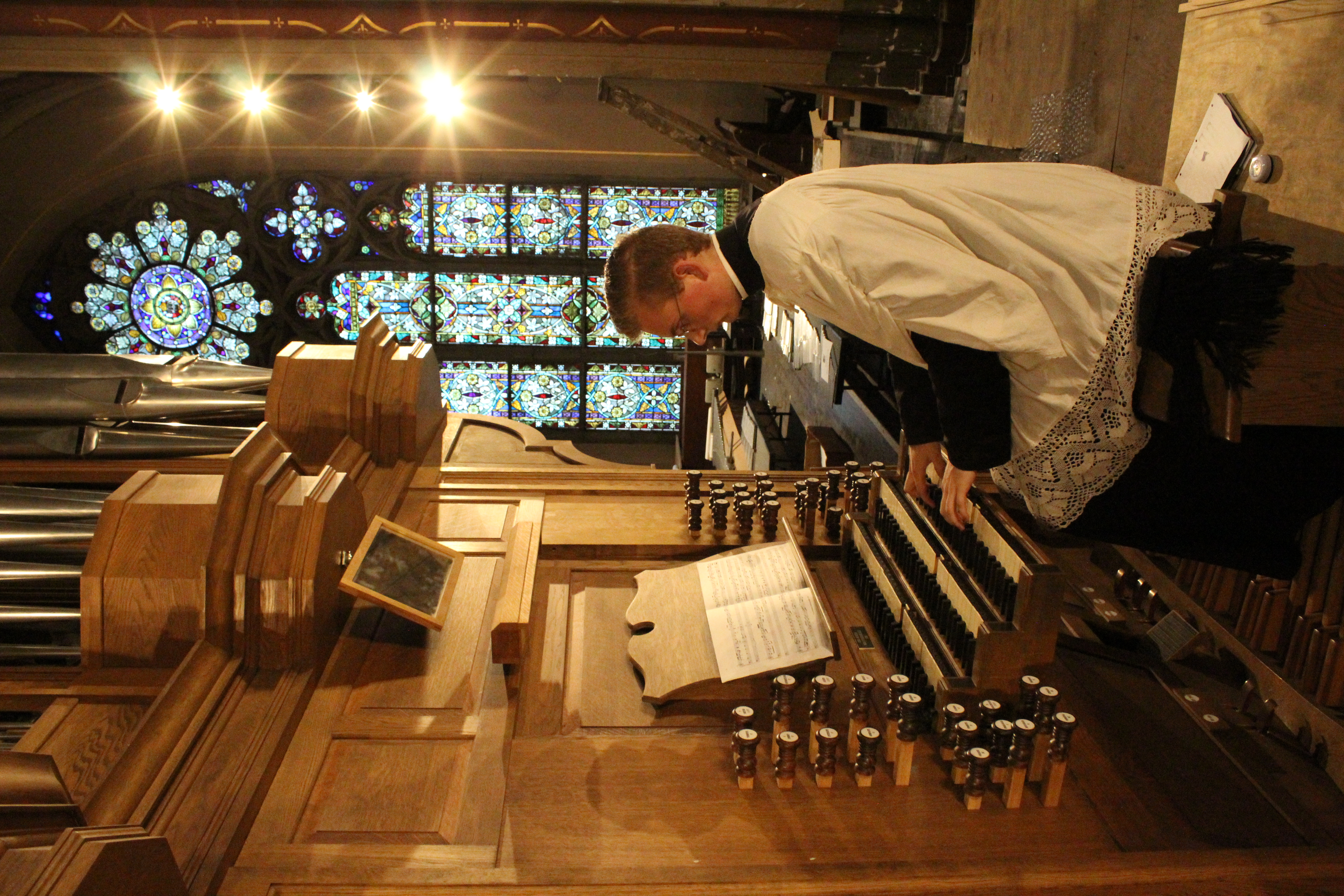Clerical Oblates
What is a clerical oblate?
The term “oblate” translates to “offer” in Latin or, in the Benedictine tradition, “one who is offered.” St. Benedict, a patron of the Institute of Christ the King, coined the term in the sixth century to refer to permanent members of his monastic community who were not monks but who chose to live according to his rule.
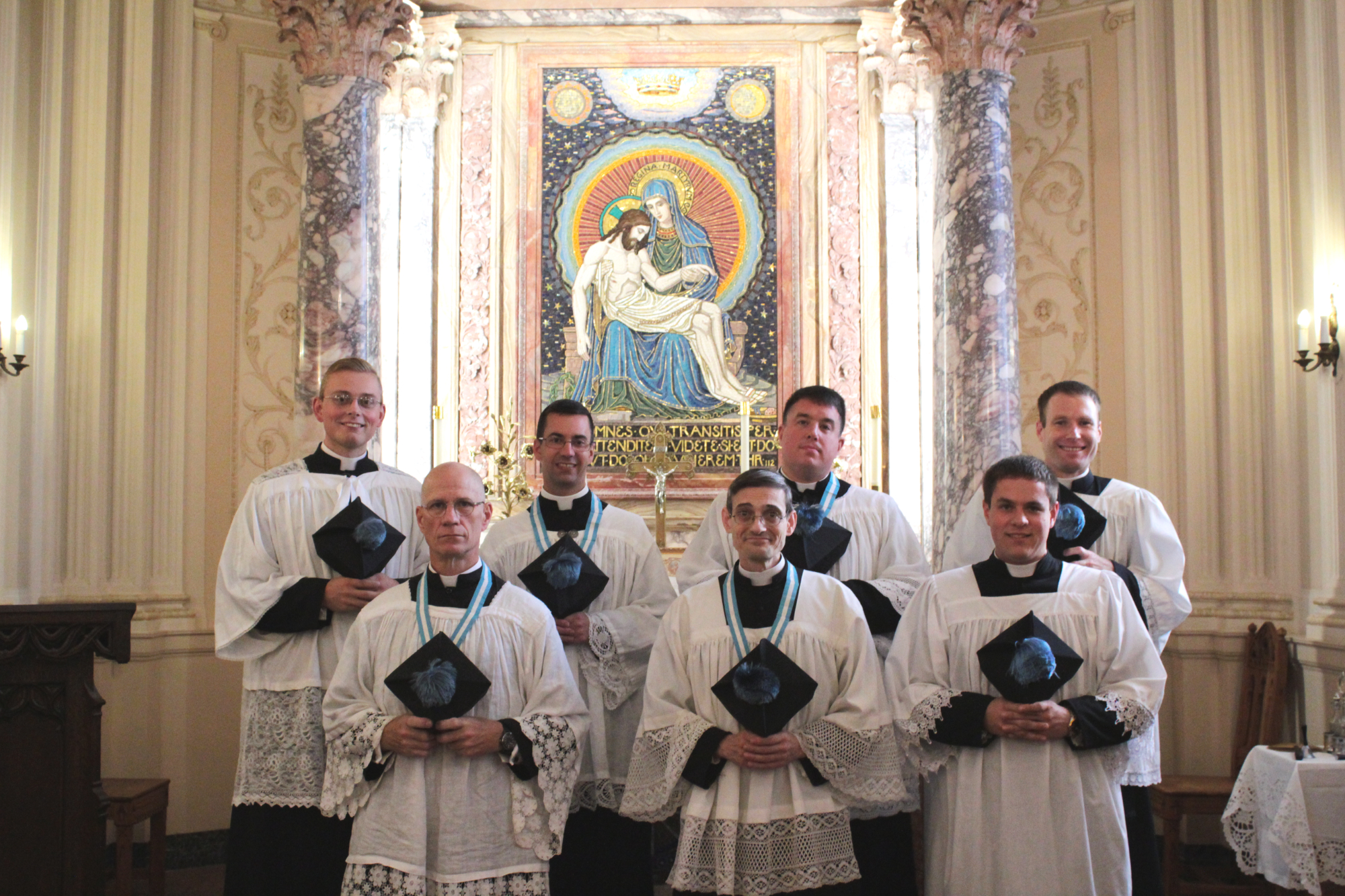
Similarly, oblates within the Institute of Christ the King are not priests but serve as assistants to the priests, not infrequently being referred to as "guardian angels of the priests." Institute oblates are considered full members with all the rights and duties that entails. According to their skills and prparation, they work in a wide variety of positions within the Institute: deacon, art director, office administrator, sacristan, teacher, gardener, organist, accountant, and cook. They take part in all official liturgies and are trained to participate in different functions to enhance the solemnity of liturgical celebrations.
Oblates in History
Clerical oblates are not a modern invention. Throughout the history of the Church, there have always been men received into the service of the Church by way of the Tonsure, which is a special sacramental that makes them clerics and official servants of the Church. These men would also receive certain minor and major orders which would spiritually animate the work that they did for the Church. Some were ordained porters, while others served as lectors and so forth.
In receiving these orders, clerics were aided by supernatural grace in a most special way to perform their tasks well. Additionally, through these orders, their simple life of service became a participation in Christ’s mission from the Father: to glorify the Most Holy Trinity and to save souls.
Clerical Oblates, such as those in the Institute, are clerics and so, unlike lay brothers, through their participation in the sacrament of Holy Orders, their ordinary life of work and prayer is transformed into a participation in Christ’s priestly mission and more specifically in Christ’s sacrificial mission.
Being an Oblation
An oblation is an offering to God. Oblates give themselves up like incense, a sweet odor that is edifying to all who are present, and for the purpose of giving adoration and praise to God in the liturgy. This includes preparation in the sacristy, serving on the altar, playing the organ, and singing for the liturgies.
The spiritual life of oblates is directed toward a spirit of service and charity, following the example of the Holy Family which had at its center Our Lord, Incarnate Priest and King. Consequently, oblates see their lives as a charitable service rendered to the Priesthood of the Lord, in the Church and in our Institute.
They give their lives as a total oblation to this service, thereby participating, by the travail of divine grace, in the work of the Redemption.
This love of the Lord, King and Sovereign Priest, shows forth firstly in a regular spiritual life, anchored in the frequent reception of the sacraments, daily assistance at holy Mass and by participation in the Divine Office, both in common and in private. Mental prayer, Adoration of the Blessed Sacrament, daily Rosary and spiritual reading are also necessary parts of the spiritual life of each oblate.
Being an oblate involves completely dedicating oneself to the service of the Church. Following closely to the spirit of St. Francis de Sales, the Institute’s primary patron saint, the oblates do their best to bring about the spirit of charity in all the work that they do, regardless of whether that work is of their own choice or assigned by a superior. They are aware that the service requested of them could take them just about anywhere in the world. They will cheerfully go wherever, whenever requested by their superiors, always practicing generosity of spirit.
Spirituality
Oblates possess first and foremost an intense love of Our Lord, King and Sovereign Priest, expressed in a vibrant spiritual life anchored in the frequent reception of the sacraments, daily assistance at Holy Mass, and by participation in the Divine Office. This great emphasis on the liturgy is based primarily on the first of the three patrons of the Institute: St. Benedict.
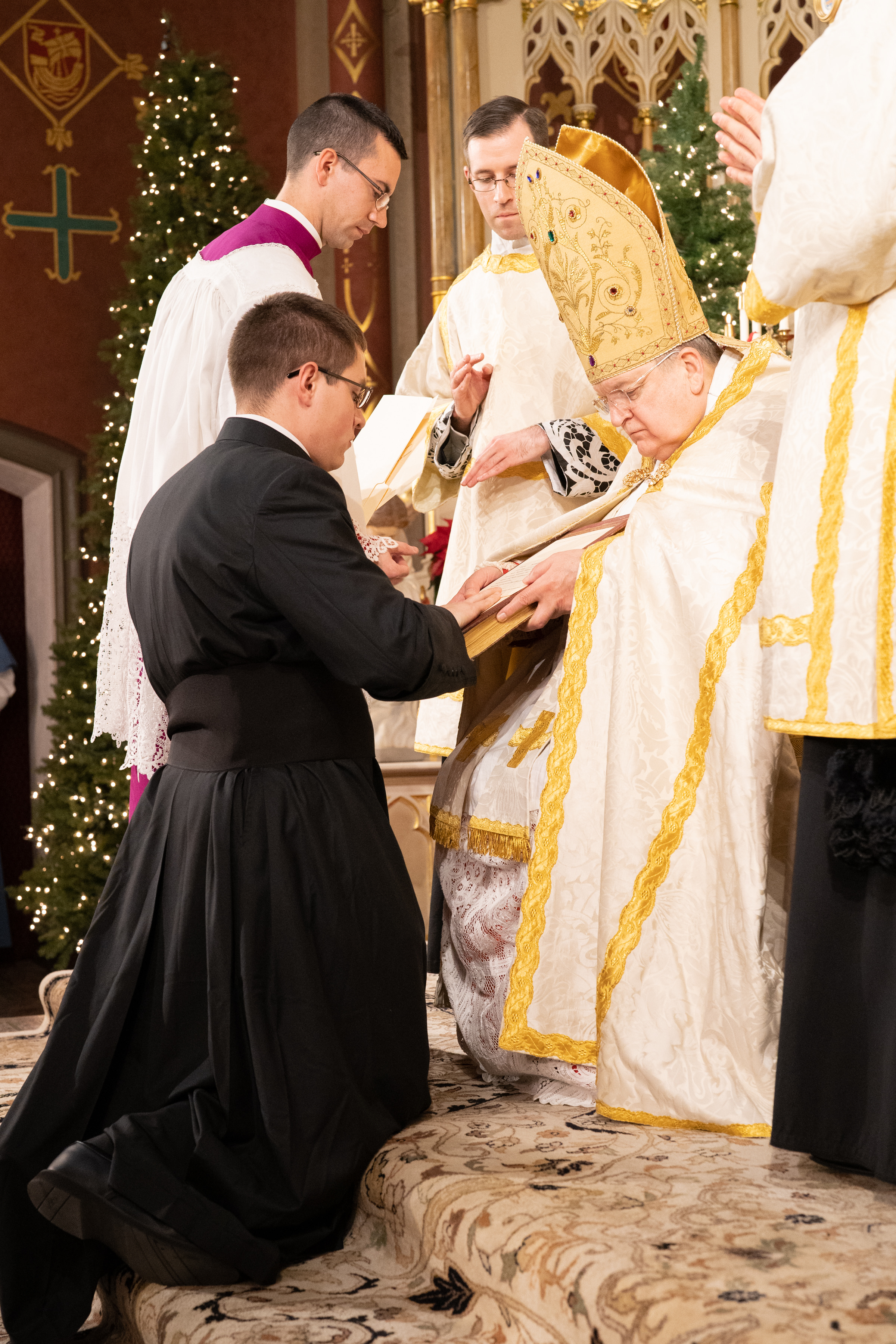
The patronage of St. Thomas Aquinas helps the oblates to study well the truths of the faith so as to live them out more completely and to teach them to others. The oblates also study to perfect the skills that God has given to them specifically. In this way, intellectual and practical studies are another way in which they offer themselves completely.
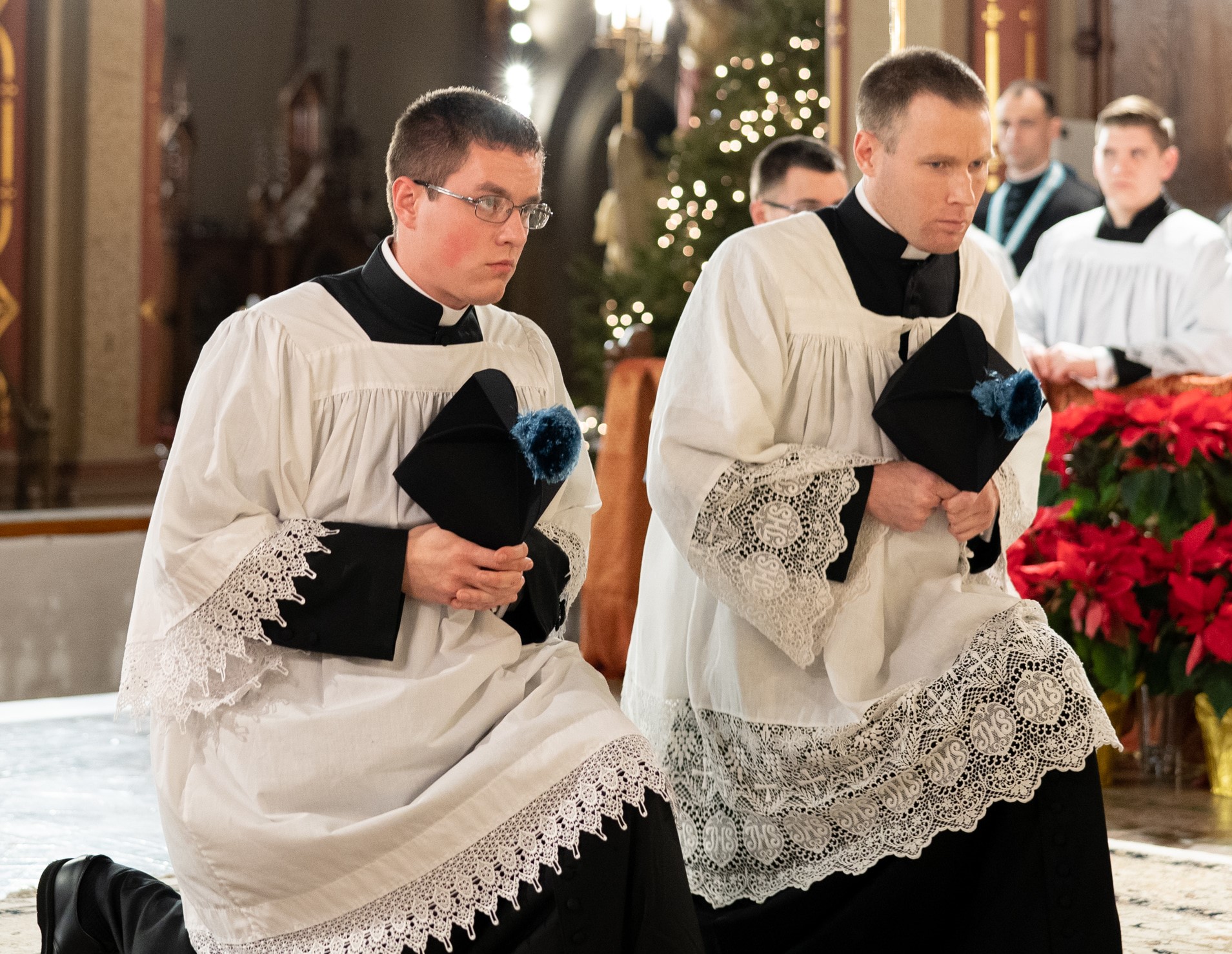
St. Francis de Sales ties the whole spirituality of the oblates together. His spirituality is well suited for clerics who strive to live “in the world but not of the world”. The simple, balanced approach of St. Francis de Sales, to love God in all the ordinary aspects of human life, brings the oblate spirituality to completion: to give their whole life as a total oblation in God’s service, which makes them participate in the work of His Redemption.
Practical Life
The role of an oblate is first and foremost to be a man of the Altar, being there to serve Our Lord Jesus Christ at the sacred liturgies of the Church including Mass, Adoration, the Divine Office (Breviary) in a non-priestly way. In addition to participating in these liturgies, they prepare and clean up after the ceremonies.
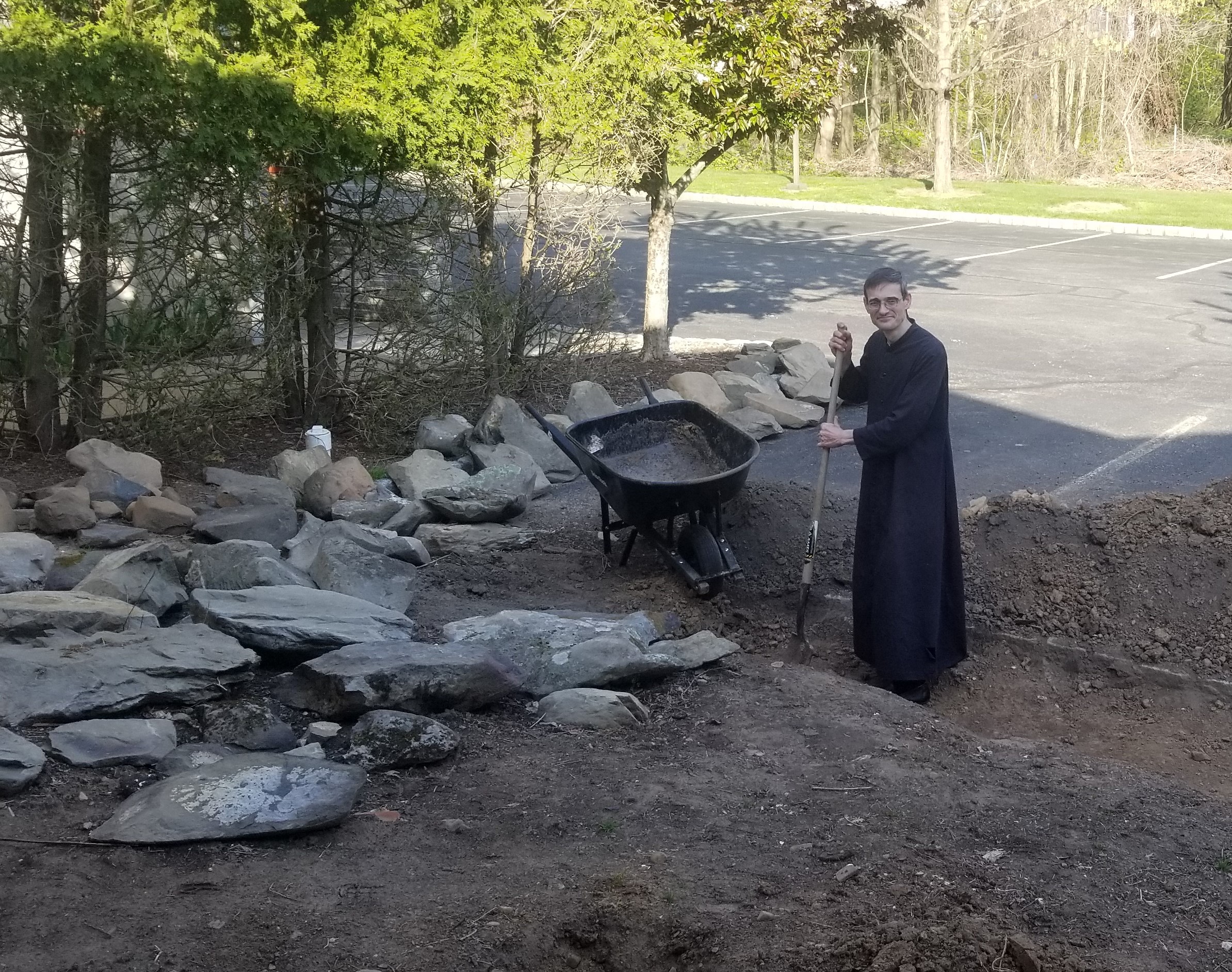
However, the service of these dedicated souls does not stop there, as there are additional aspects to service. The oblates have as part of their charism the administration and maintenance of the physical church buildings, including the repair, cleaning and the beautification of the buildings which exist for the service of the God and His Church.
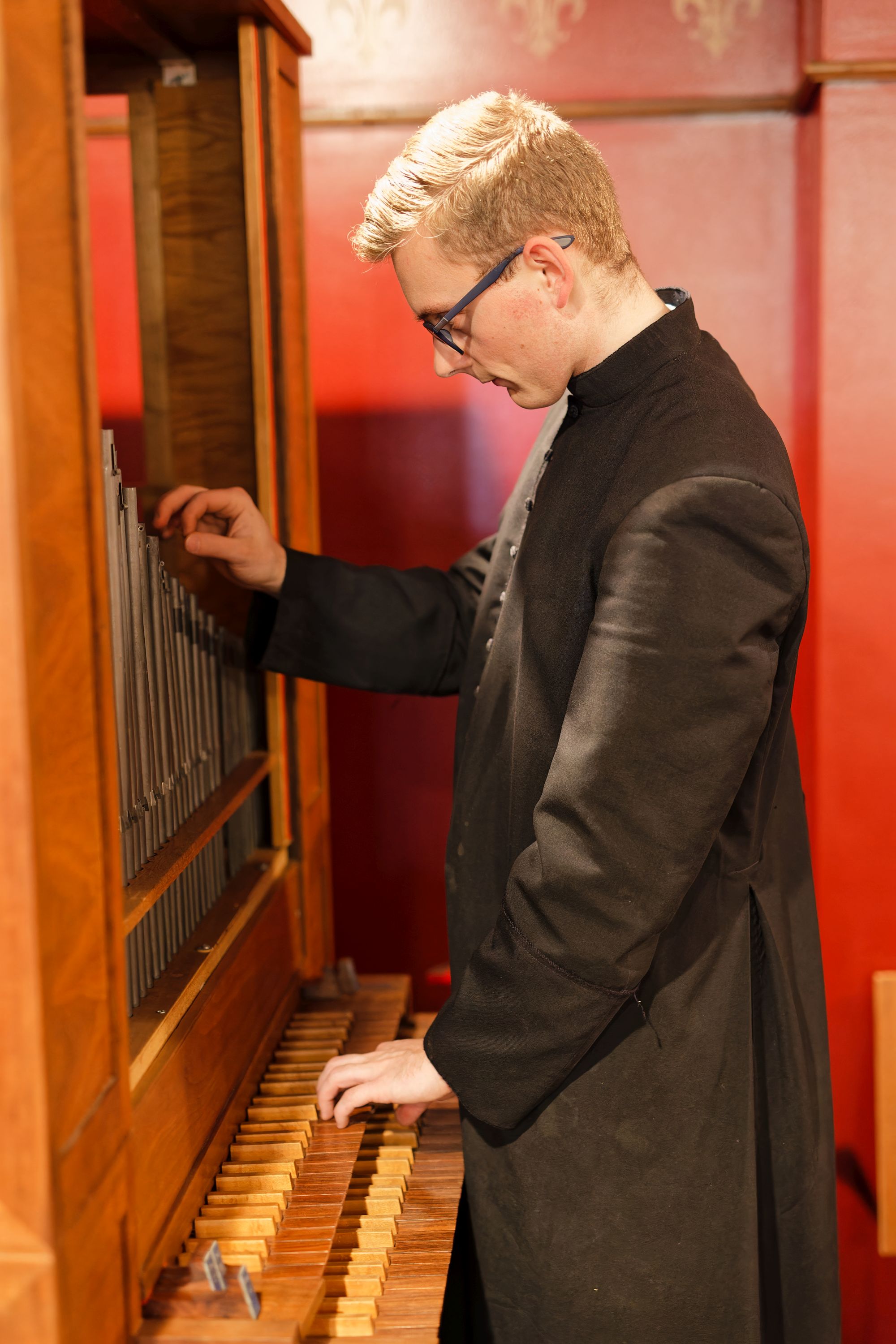
Their vocation also includes having a sound formation in the Catechism of the Church. Each of the oblates are formed with basic training in the Latin and French languages as well as specific training in a service in which they may serve the community and the Institute as a whole in their special way. Some of these include, but are not limited to, liturgical music such as chant, organ or violin, teaching catechism classes, church restoration, majordomo, office management, building maintenance and repair, vehicle repair, sacristan, apostolate cook, and community barber.
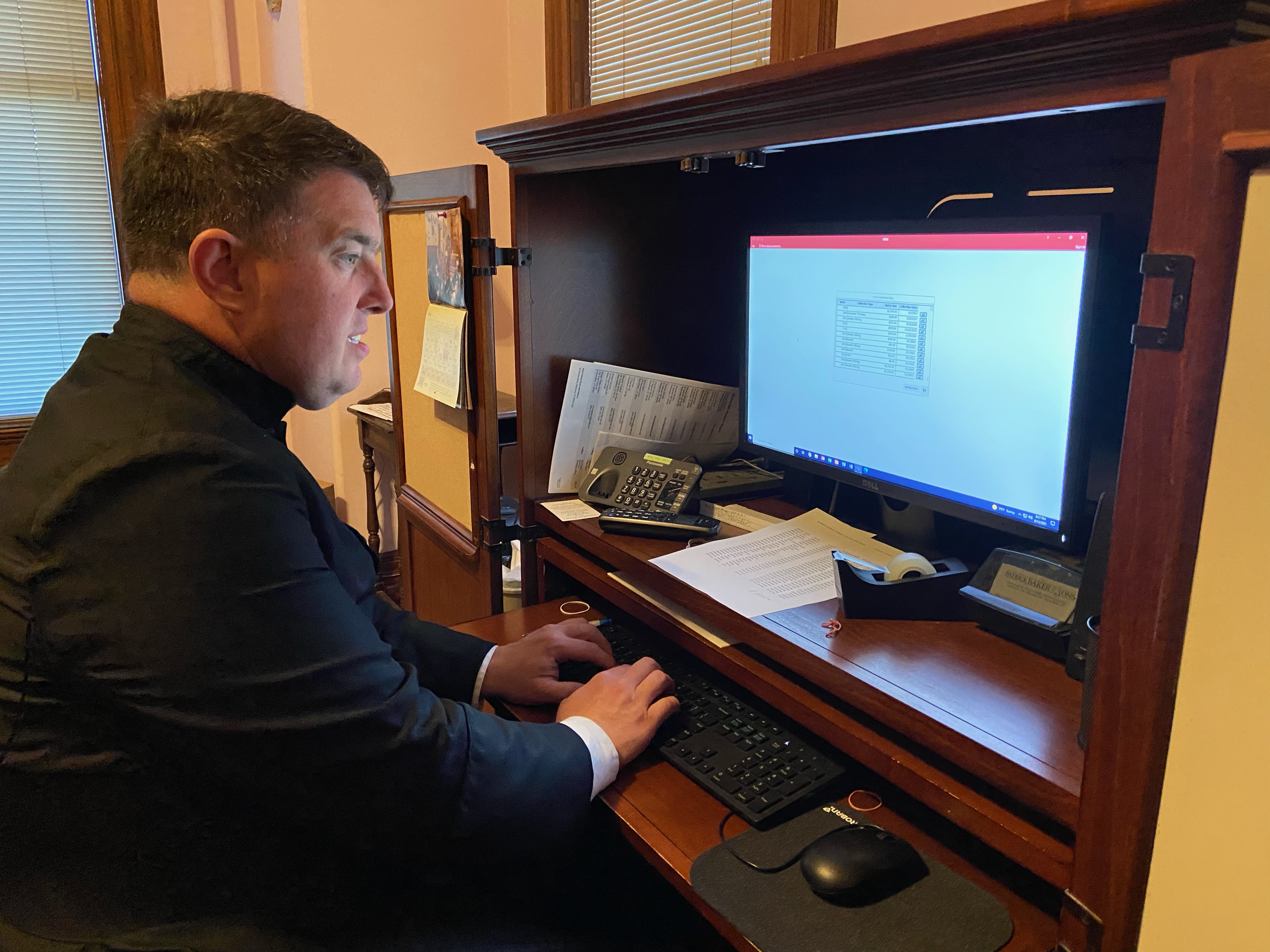
The oblates work closely with the Canons with whom they are assigned, doing their best to complete the necessary, non-sacramental background work so that the Canons are available to accomplish the important priestly duties of the parish life such as hearing confessions, spiritual directions and caring for the sick and dying.
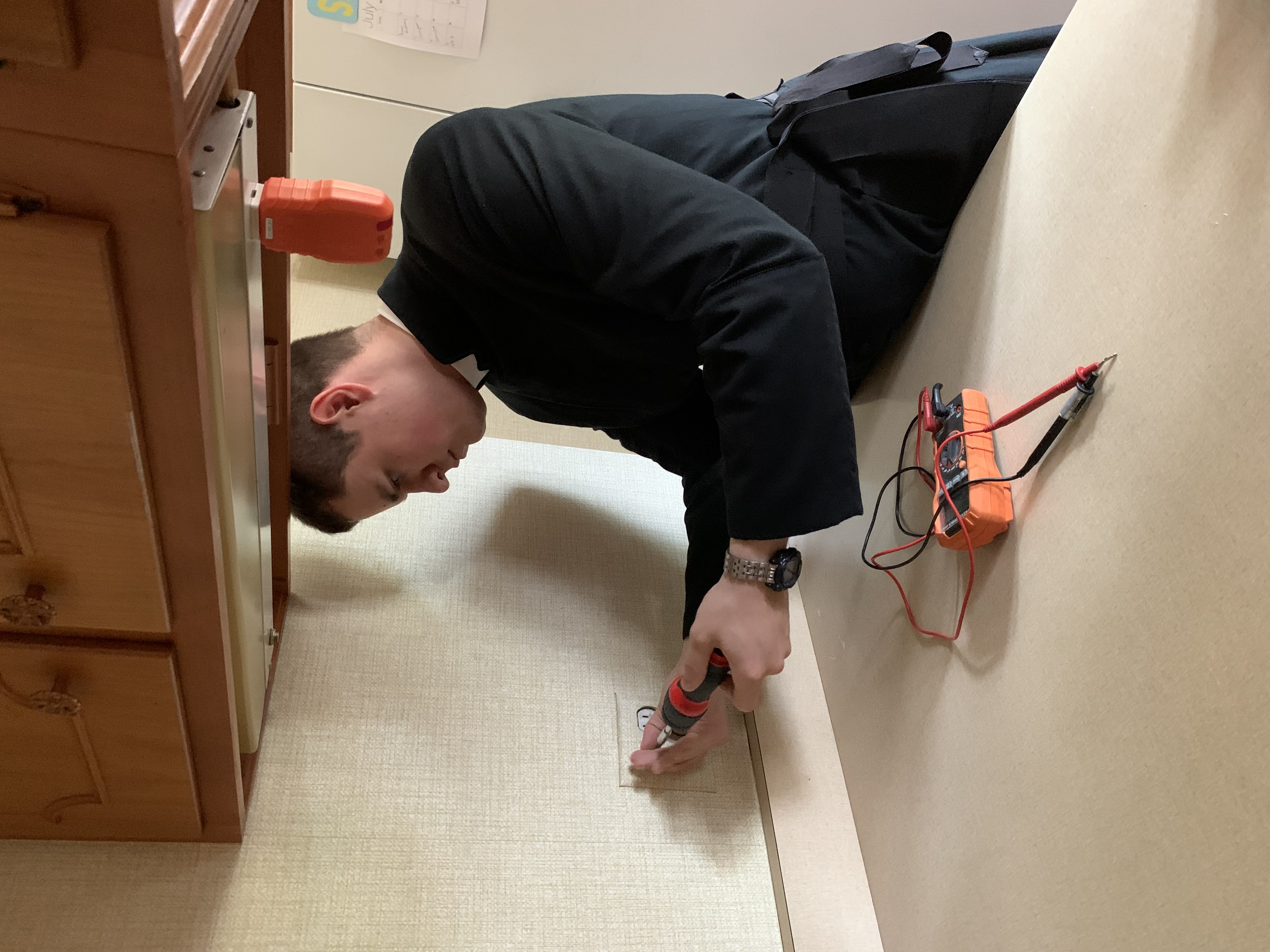
Indeed, the Institute oblates have many practical skills which are an integral part in helping the community to thrive. They go from the above-mentioned works associated with the liturgical and prayer life of an apostolate all the way down to cultivating their favorite past times. Some enjoy spending community time playing their musical instruments or singing, while others have interests in wood carving, drawing, writing stories and even building computers. All these activities are beneficial to the community as well as to their own rest and relaxation.
A Providential Gift
The oblatehood within the Institute has truly been a special gift from Christ the King to all of us. Our oblates’ continuous display of service and charity, after the example of the Lord and His Blessed Mother, has been instrumental in inspiring many toward leading a more dedicated Catholic life, conversions to the Catholic faith and bringing back those who have fallen away.
Deeply grateful for every single oblate, the priests of the Institute of Christ the King feel a truly fraternal bond with these wonderful men who, together with them, help to spread the reign of Christ the King.

